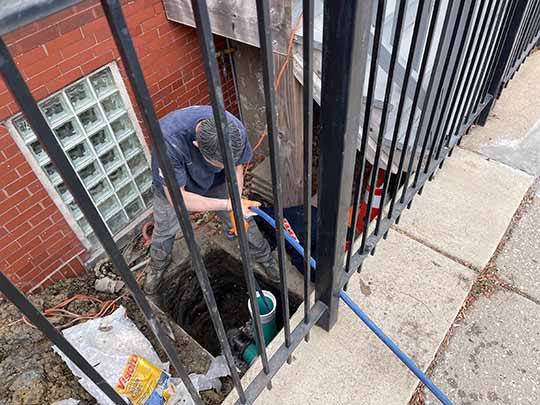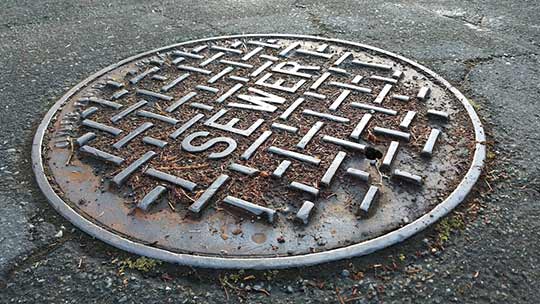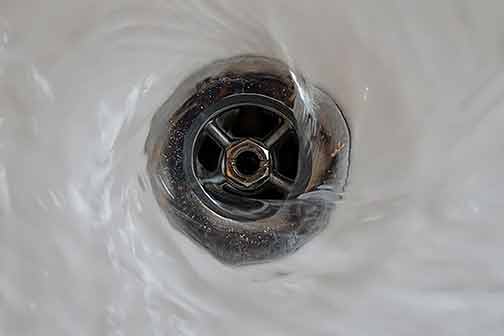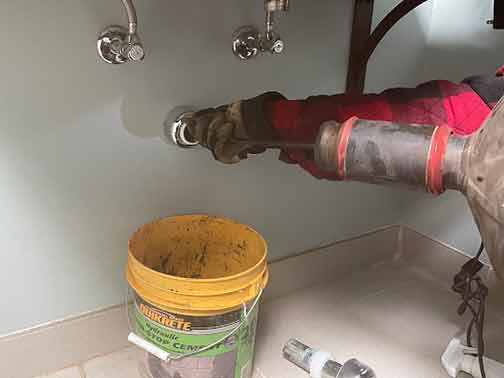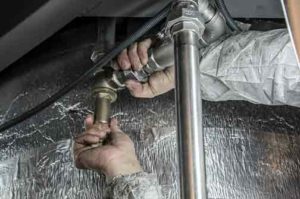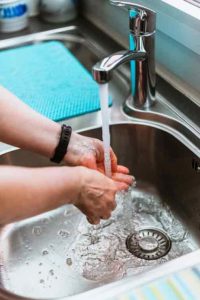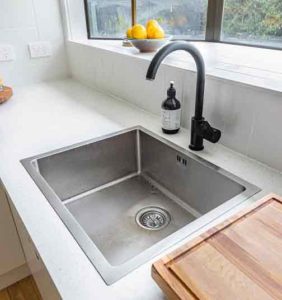Drain backup is one of the most common and annoying problems homeowners face. Several things, including hair buildup, oil collection, and food particles, could cause a clogged drain. While products on the market claim to quickly and easily clear your drain, many contain harmful chemicals that can corrode your pipes. If you’re looking for an alternative to expensive and sometimes dangerous chemical drain cleaners, then hydro-jetting is for you. Drains can be easily and rapidly unclogged by professional services‘ high-pressure water jets, preventing any damage to the pipes. In this guide to hydro-jetting, we’ll be going over everything you need to know about it.
How does hydro jetting work?
The term hydro-jetting refers to the process of employing a high-pressure water jet to remove obstructions from pipes. What this amounts to is a professional pressure cleaning of your pipes.
One way to visualize a hydro-jetting machine is as a long, high-pressure hose with a focused jet nozzle at one end and a water-pressure device at the other. Once in place, high-pressure water jets are released from the nozzle, traveling down the pipe and cleaning it. The following objects in this guide to hydro-jetting are safe from these jets’ blades:
- Kitchen sink dumpings of filthy origin
- Soap scum
- Sand with minerals for hair tangles
- Tree roots
- Hardened cement that has dried out
If the clog is too large for a drain snake to handle or access is otherwise impeded, your plumber may recommend hydro-jetting to clear the drain and restore normal flow. If the problem keeps coming back, it’s a good sign that your pipes require more than just a simple unclogging. In addition to fixing problems, hydro-jetting is also a perfect way to keep pipelines in good shape.
What is the difference between hydro-jetting and sewer line rodding?
Hydro-jetting is a fascinating method that can effectively relieve pressure and clear obstruction. It is recommended that homeowners use jetting if they want to be absolutely sure that the problem has been fixed. Drain jetting differs significantly from traditional drain cleaning methods. Jetting requires high water pressure, while sewer rodding is inserting a rodding cable into the pipe to poke a hole in the obstruction.
When is it necessary?
Professionals turn to hydro-jetting when persistent and substantial obstacles have jammed the water system. Dirt, grease, and mineral deposits inside pipes are common causes of blockages and slow water flow. If this issue persists, sewers may get clogged, and you will need sewer line cleaning services. Therefore, if there is a blockage in the plumbing system, dirty water might potentially enter your home.
As stated in this guide to hydro-jetting, this process can clear clogged drains by utilizing high-pressure water. The jet works by letting gravity do the heavy lifting and clearing the pipes.
Hydro-jetting may be necessary if your dirty kitchen sink keeps becoming clogged up. To clear the pipes and get some rest again, you may need the help of a plumber. However, rest assured that the plumbers will fix this issue with hydro-jetting, so you won’t have to worry about clogged drains.
When should you avoid using hydro-jetting?
While hydro-jetting is a cutting-edge method for clearing pipelines of obstructions, there are situations where a different approach is preferred. According to experts from Preferred Movers, hydro-jetting is not a viable option for pipes that are extremely old, have deteriorating seals or joints, or are made of less durable materials like PVC or thinner metals. It’s possible that the instrument’s water pressure will be too much for the pipes, and they’ll burst.
These pipelines can be unclogged using standard plumbing tools that do not involve the application of force. Because the typical homeowner might not know if their plumbing system can withstand the pressure of a hydro jet, it is best to have a professional camera inspect the pipes before committing to a hydro-jetting service. This will ensure that the pipes can handle the pressure the hydro jet will put on them.
Which uses do people typically have for hydro-jetting?
There are many different kinds of pipes in a house, and a hydro jet can clean them with the correct amount of pressure. Although the three most common types of pipes to be hydro-jetted are:
- The buildup of numerous things flushed down domestic toilets can clog residential sewage systems. Large-diameter pipes, such as sewage lines, can significantly benefit from hydro-jetting. It is so effective at clearing out obstructions and the accumulation of waste that caused those problems in the first place.
- Grease accumulation in the kitchen pipes is difficult to remove with standard drain-clearing tools like drain snakes. However, hydro-jetting is perfect for this. It can remove years of grease and fat buildup in kitchen pipes, restoring the free flow of water.
- Hydro jets are commonly used to clean external drains and pipes because the powerful water spray makes quick work of the dirt, stones, and other detritus that can accumulate there.
As mentioned above, if you’re not sure about the type of pipes you have, reach out to experts to inspect them. Even if hydro-jetting sounds like a perfect solution to all your drain problems, you can easily damage them if you’re hasty and unprepared.
Dangers of hydro-jetting
The average craftsman should not attempt hydro-jetting. Also, it may not work if the pipes are in bad shape. Consider all your options first instead of going straight to a solution involving hydro-jetting. It could cause further damage if not required.
The hydro-jetting process includes shooting a stream of water at a high-pressure rate. Because of the inherent risks in this method, homeowners should insist that only a qualified professional perform it. Having someone else tinker with your plumbing could potentially make the situation worse.
In conclusion
Businesses, restaurants, and homes should all adopt the necessary safety measure for hydro jet drain cleaning. Knowing that hydro-jetting is an advanced method is essential. Therefore, it is dangerous to undertake anything without professional assistance. It’s possible that you’ll wreak even more havoc on your plumbing system after reading this guide to hydro-jetting. The best course of action is to consult local plumbing experts.
